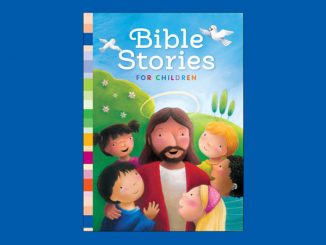
When teaching others, especially children, about Scripture, we often find ourselves paraphrasing the actual Scripture passage in order to use words that more closely resonate with contemporary experience. This is all well and good, and I do it myself all the time; however, it is important that we expose people to the actual Scripture passages we are summarizing to ensure that we are not putting words in God’s mouth!
Recently, I overheard someone speaking to children and telling them that, “God wants you to have a fabulous life!” While that sounds really cool and exciting, God does not tell us anywhere in Scripture that he wants us to have a fabulous life! Scripture reveals to us that God wants us to prosper, to have a full life, a blessed life, to have peace, and to share in his joy—to name a few. The problem with telling people that “God wants you to have a fabulous life” is that the word fabulous cannot be found anywhere in Scripture and, even according to today’s standards, can mean just about anything to anyone. According to Merriam-Webster, fabulous means “of an incredible, astonishing, or exaggerated nature” or “resembling or suggesting a fable.”
Incredible and astonishing may sound very enticing, but they create unrealistic expectations of a life with no problems or challenges. The experience of the Cross is not “fabulous” and yet, Jesus’ promise of fullness of life comes through the experience of the Cross.
In my work at Loyola Press, one of my jobs is to ensure that the words we choose for our textbooks speak to children in such a way as to remain faithful to Sacred Scripture. We at Loyola follow the norms and guidelines articulated by the Church, such as the following:
Perfect fidelity to Catholic doctrine is compatible with a rich diversity of presentation. (GDC 122)
Because of its intrinsic importance both in tradition and in present day catechesis, mention must be made of the method of approaching the Bible, of “documentary pedagogy”, especially of the Creed, since catechesis is a transmission of the faith; of the method of liturgical and ecclesial signs; and of methods proper to the mass media. A good catechetical method is a guarantee of fidelity to content. (GDC 149)
All catechetical textbooks should…be faithful to the Sacred Scripture. (NDC 68a)
To do anything less is to trivialize the Good News of the Gospel, putting God’s plan for us on par with the sentiments of a greeter at a big-box department store: “Have a fabulous day!”
Christ Our Life teacher and catechist guides include Reflecting on the Faith Experience and Preparing for the Faith Experience sections to invite reflection on Scripture and indicate Scripture that’s included in each chapter.




Thank you for your thoughtful commentary. I agree with you entirely: I don’t think our goal as catechists should be to bring the Gospel down to our students. Rather, we should bring our students up to the Gospel. If a message as written by the evangelists is too complicated for a child to understand, then perhaps the child is not yet ready to learn that particular lesson. Rather than simplifying the complex to the point that the message loses its meaning, start with something inherently more simple, and help the child advance at his or her own pace.
Sofia Cavalletti stated: rich food and very little of it when describing how catechists should listen to God’s Word with children. The essential text is all that the Holy Spirit needs when serving as “the teacher.” We listen along with the children. Yes, we are necessary for some vocabulary, but children can deeply enter into the Word of God when allowed space to do so.
Not only is it important to read scripture but to help students navigate the books of the Bible themselves by helping them to look up Bible passages. This is our duty as catechists. To teach the good news esp the Gospels.